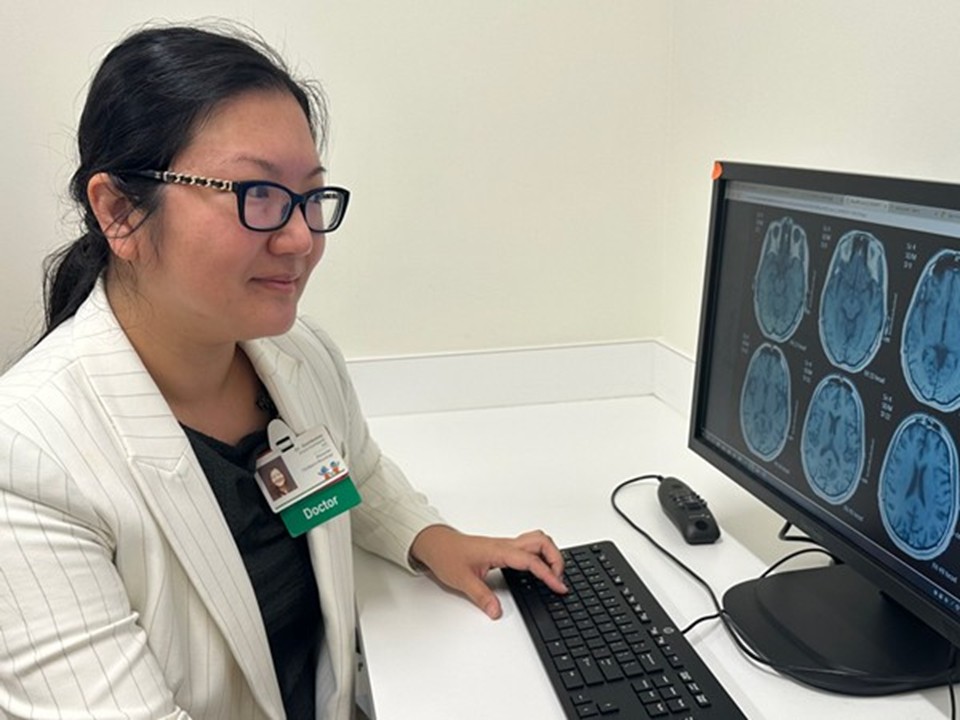Former Georgia CTSA KL2 Scholar Leads Registry to Improve Treatments for Rare Diseases

With a mission to improve health outcomes, Grace Gombolay, MD, MS, Associate Professor of Pediatrics at Emory, and Pediatric Neurologist at Children’s, is leading national collaborations to advance care for children and adults with rare neuroinflammatory diseases. Her work focuses on conditions where the immune system attacks the brain—such as autoimmune encephalitis, Rasmussen’s encephalitis, and new-onset refractory status epilepticus (NORSE)—which can cause significant neurological and cognitive challenges for patients and their families.
Through her formation and leadership of the CONNECT (Conquering Inflammation and Epilepsies ConsorTium) registry and now the NIH-funded ARISEN (Autoimmunity, Rasmussen’s, Inflammation & Status Epilepticus research Network), Dr. Gombolay is transforming how these rare conditions are studied, diagnosed, and treated. Both initiatives bring together institutions across the country to better understand these disorders, identify new biomarkers, and move the field toward clinical trial readiness.
How Georgia CTSA Training Fueled Her Growth
Dr. Gombolay attributes much of her research foundation to her experience as a Georgia CTSA KL2 Scholar and Master of Science in Clinical Research (MSCR) graduate. The two programs provided complementary skills that shaped her into a confident and methodical investigator.
“The MSCR program gave me the research foundation I needed—statistics, methodology, leadership, and clinical trials training,” Gombolay explains. “Those skills have been instrumental in how I think about science and how I approach my patients.” Additionally, the KL2 program further strengthened her grant writing, study design, and collaborative approach. “The grant writing course was transformative. It made me a better scientist, writer, and reviewer. I still use what I learned every time I prepare a proposal.”
She also emphasizes the power of mentorship and peer connection within Georgia CTSA. “Having colleagues who were navigating similar challenges made a huge difference. That community inspired me to stay focused, push through setbacks, and keep building collaborations.”
From Training to Leadership and Lasting Impact
The skills and support Dr. Gombolay gained through Georgia CTSA helped her move from an early-career investigator to a nationally recognized leader in rare disease research. Her KL2 project on biomarkers in autoimmune encephalitis evolved into CONNECT—the first multi-center pediatric registry of its kind in the U.S.—which now includes data and biospecimens from over 19 centers.
Building on that success, along with Dr. Kristy Murray (Professor of Pediatrics, Vice Chair of Research at Emory, and Chief Research Officer at Children’s), Dr. Gombolay now co-leads ARISEN, a five-year NIH U54 grant through the Rare Diseases Clinical Research Network. When preparing the ARISEN proposal, she again partnered with Georgia CTSA to strengthen the mentoring and training components for junior investigators—an element she credits as pivotal to securing the award.
“I received a letter of support from Georgia CTSA for the U54 grant,” she remarks. “That collaboration helped us show our commitment to training and career development for early-stage investigators—a key reason we were funded.”
Advice for Future Georgia CTSA Scholars
Reflecting on her experience, Dr. Gombolay encourages current and future KL2 and MSCR scholars to stay persistent and make the most of the opportunities the programs provide.
“My advice is to keep applying, keep learning, and keep building relationships. Research is challenging, but programs like Georgia CTSA give you the structure, mentorship, and community to succeed. The training you gain here continues to influence every step of your career.”
The impact of that training extends far beyond her own research. Through CONNECT and ARISEN, Dr. Gombolay has created opportunities for more than 30 investigators to collaborate, publish, and secure their own funding. “Georgia CTSA and NIH support don’t just impact one researcher,” she reflects. “They create a ripple effect—fueling careers, collaborations, and discoveries that will ultimately benefit patients and families for years to come.”